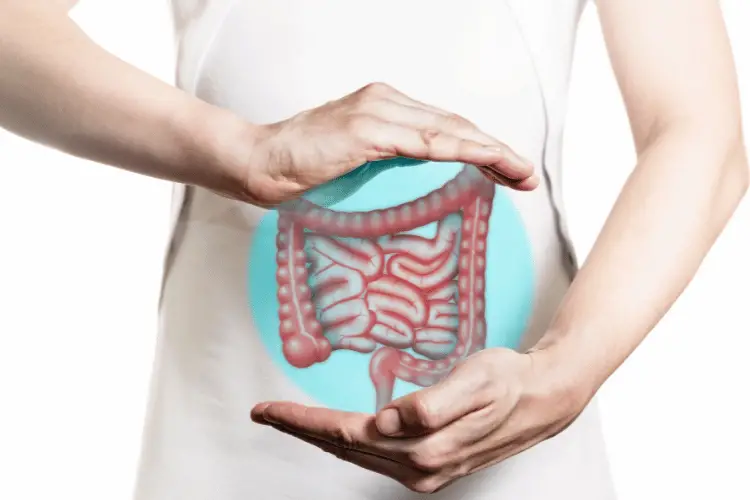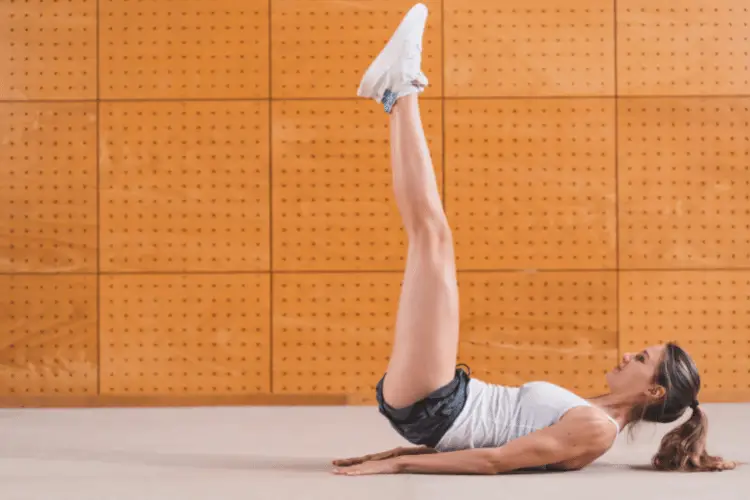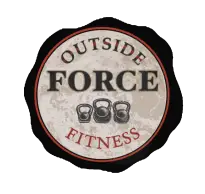Exercise sure has a lot of benefits for our body and mind. But, have you ever needed to pause an exercise session because of a sudden urge to go to the bathroom?
You’re not alone, this and other interesting things happen to a lot of people, and there are plenty of scientific explanations for it. So, how does exercise affect bowel movement?
Exercise, especially strenuous forms, can definitely contribute to more bowel movement. In fact, in super long-distance efforts, it can even lead to diarrhea in severe cases. But for most of us average people, it can help with constipation and keeping you regular.
If you want to find out more about the effects of exercise on your bowel movement, this guide will cover the basics of what you need to know. Let’s dive right in!

What Is the Effect of Exercise on Bowel Movement?
Exercise has a remarkable effect on different parts of our body. Besides the targeted muscles, our circulatory and digestive systems are both affected by intense workouts.
For example, cardio exercises can have a potent impact on the gastrointestinal tract, causing an increase in bowel movement.
This happens because of speeding up peristalsis, which is the contraction of the muscles in your intestines to transport food through the system.
Clinical Studies Back This Up
Feeling the urge to hit the bathroom while exercising is more common than you think! In fact, there are several studies and reports out there that documented this reaction to try and find an explanation for it.
For example, this study found a slight increase in bathroom breaks’ frequency and duration among volunteers after moderate physical exertion.
This opened the door to many scientific studies in this field, which revealed similar results on larger scales.
A 2009 study found that 70% of gastrointestinal issues (such as abdominal pain, diarrhea, constipation, etc.) that happen to athletes are caused by strenuous exercise and dehydration.
However, the same study also revealed that moderate exercise with a healthy diet can reduce the risk of a wide range of gastrointestinal diseases.
In 2020, a Japanese study found that physical activity and consistent exercise can reduce the severity of gastrointestinal symptoms among individuals suffering from irritable bowel syndrome (IBS).
Runner’s Diarrhea Is Actually a Thing
Besides being one of the healthiest forms of exercise, our bodies have evolved to endure running longer distances than most animals.
Despite that, running can still have a remarkable impact on our bowel movements by speeding them up dramatically.
In fact, this condition goes by many names, such as “runner’s diarrhea”, “runner’s trots”, and “runner’s colitis”, which is common among long-distance runners.
A recent study on long-distance and marathon runners found that this condition is more common the longer and more intense the running session gets.
- 62% of runners took a bathroom break during practice. (some studies found that number to be up to 90%)
- 12% even stopped during competition because of bowel movements.
Runner’s diarrhea is characterized by being watery but varies in terms of urgency from one athlete to another.
Luckily, it usually clears up on its own within a few hours to a day after long-distance running sessions.
Why Does Exercise Increase Bowel Movements?
Although the effects of exercise on bowel movement are quite obvious, the exact reasons aren’t.
In fact, there’s still a debate among concerned scientific communities about the factors that cause increased bowel movements.
Some even think that it’s a combination of all these different reasons, so here’s a quick look at each one of them.
Change in Blood Flow
This is one of the most popular explanations for increased bowel movement during exercise. During workouts, blood flows more into the lungs and incorporated muscles and away from the digestive system.
This hinders the digestive system’s ability to digest and absorb food, which can end up disturbing the digestion process depending on the intensity of the exercise.
The Movement Pattern
Certain exercises, especially running, are known for their sudden movements that involve a lot of skipping.
This jumpy motion can affect the digestive tract by pushing food through the gut by inertia and gravity.
This is why running is more likely to trigger bowel movements than other, more static endurance sports.
Certain Dietary Habits
What we eat also has a major impact on our body’s reaction to exercise. For example, some nutrients are known for triggering faster bowel movements than others.
Certain foods that are rich in low-quality carbohydrates can increase the risk of gastrointestinal symptoms during exercise. This includes items like:
- Sugary food
- Highly processed foods
- Soda and carbonated drinks
- Fast food
Steering clear of these foods can dramatically improve your bowel movement problems during exercise.
Hydration Issues
Water is a fundamental part of almost all biological processes that our bodies do. Water is necessary for proper food digestion and absorption.
While exercising, our bodies lose a lot of moisture in the form of sweat to cool our bodies down. We also lose water every time we exhale. Without proper replenishment of the lost water, there may not be enough moisture content in the digestive system to pull off healthy digestion.
When that happens, the digestive system may display various symptoms, such as maldigestion, bloating, and irregular bowel movement.
Release of Endotoxins into the System
During high-intensity exercise, our bodies go through a multitude of chemical and enzymatic changes. One of these changes is the release of cytokines into the bloodstream.
Cytokines are proteins that affect our immune system, either by speeding it up or slowing it down, and they’re produced by the body as a natural reaction to sudden changes.
According to a study, some bowel movement reactions and gastrointestinal disturbances during exercise can be traced back to the production of these cytokines.
Can Exercise Help with Constipation?

Now that you know more about the effects of exercise on bowel movement, you might be wondering whether we can use this to our advantage.
The great news here is that exercise does help with constipation, especially if you exercise frequently and in moderation.
One study found that physical activity was highly effective in managing constipation in middle-aged obese women.
The findings of these studies agree with the finding of a more recent systematic review and meta-analysis, which establishes a strong connection between exercise and reduced constipation among 680 participants.
When Should I Be Concerned?
Bowel movement can range anywhere from 3 times a day to 3 times a week. The variation here depends on your diet, activity level, and other aspects.
As long as your bowel movements are within a normal frequency range and you don’t experience any discomfort before or after it, you don’t have to worry.
However, if it’s too frequent, severe, or accompanied by other gastrointestinal symptoms, you should seek the help of a medical professional for further assessment.
Final Thoughts
So, there was a whole lot of information about exercise’s effect on your bowel movements.
As you can see, exercise can definitely impact bowel movements and speed them up, although there’s still a debate about the reason behind that.
You can use this effect to your advantage, but you can also consult your medical provider if things become too severe or frequent. We are all different, so find out what works for you.
References
- https://my.clevelandclinic.org/health/body/22892-peristalsis
- https://www.ncbi.nlm.nih.gov/pmc/articles/PMC3356485/
- https://www.ncbi.nlm.nih.gov/pmc/articles/PMC1378967/
- https://pubmed.ncbi.nlm.nih.gov/19535976/
- https://www.ncbi.nlm.nih.gov/pmc/articles/PMC7259724/
- https://pubmed.ncbi.nlm.nih.gov/1556421/
- https://link.springer.com/article/10.1007/s40279-014-0153-2
- https://pubmed.ncbi.nlm.nih.gov/16646627/
- https://pubmed.ncbi.nlm.nih.gov/17029608/
- https://pubmed.ncbi.nlm.nih.gov/8460288/
- https://pubmed.ncbi.nlm.nih.gov/30843436/
- https://www.ncbi.nlm.nih.gov/pmc/articles/PMC5734236/
- https://www.healthline.com/health/exercise-fitness/diarrhea-after-working-out
- https://www.healthline.com/health/diarrhea/runners-diarrhea
- https://pubmed.ncbi.nlm.nih.gov/10600658/
- https://my.clevelandclinic.org/health/diseases/17791-frequent-bowel-movements
- https://www.webmd.com/digestive-disorders/exercise-curing-constipation-via-movement


